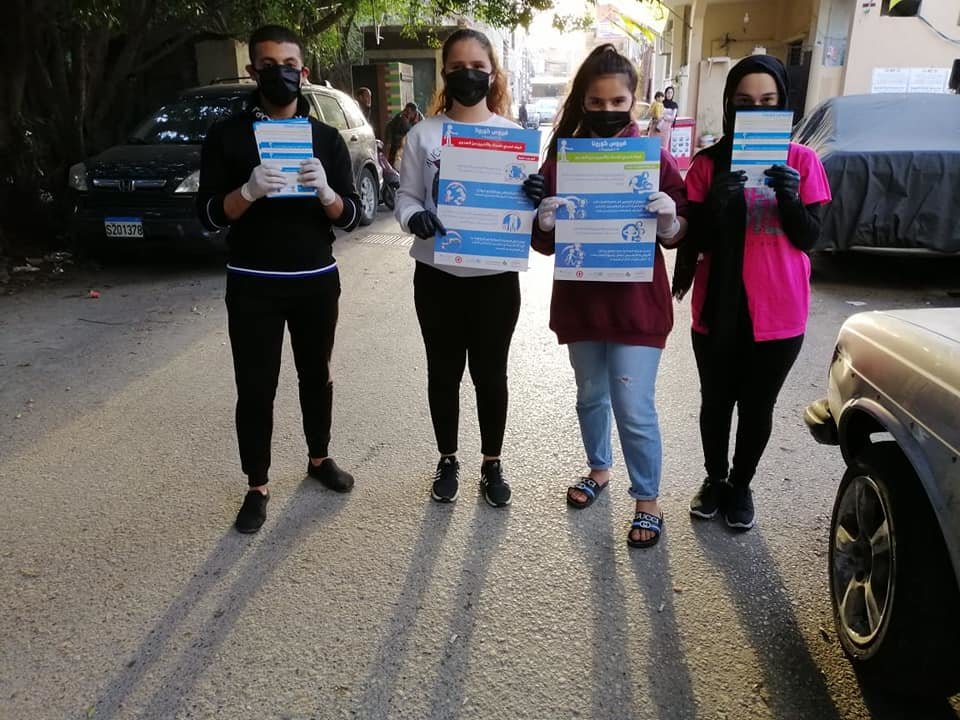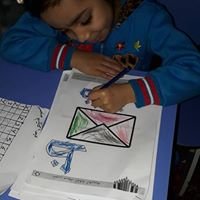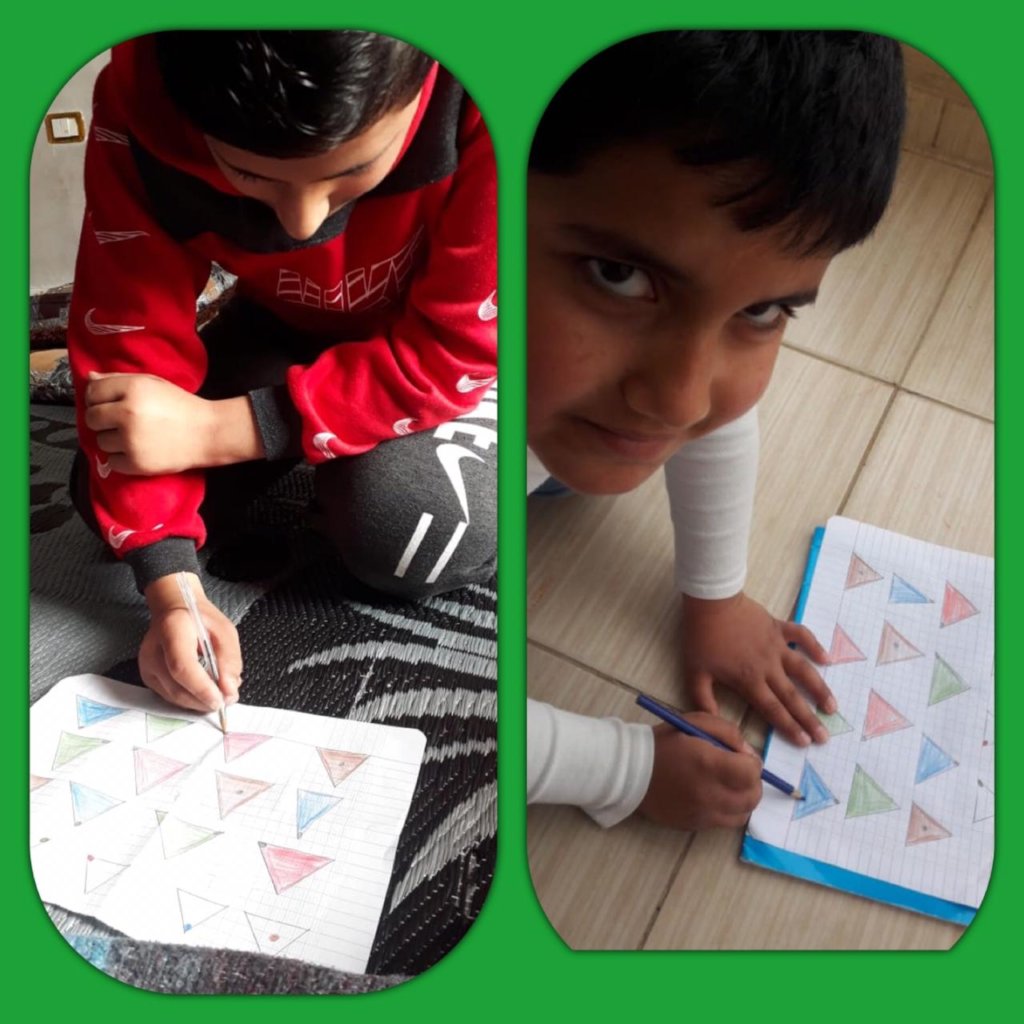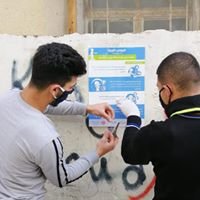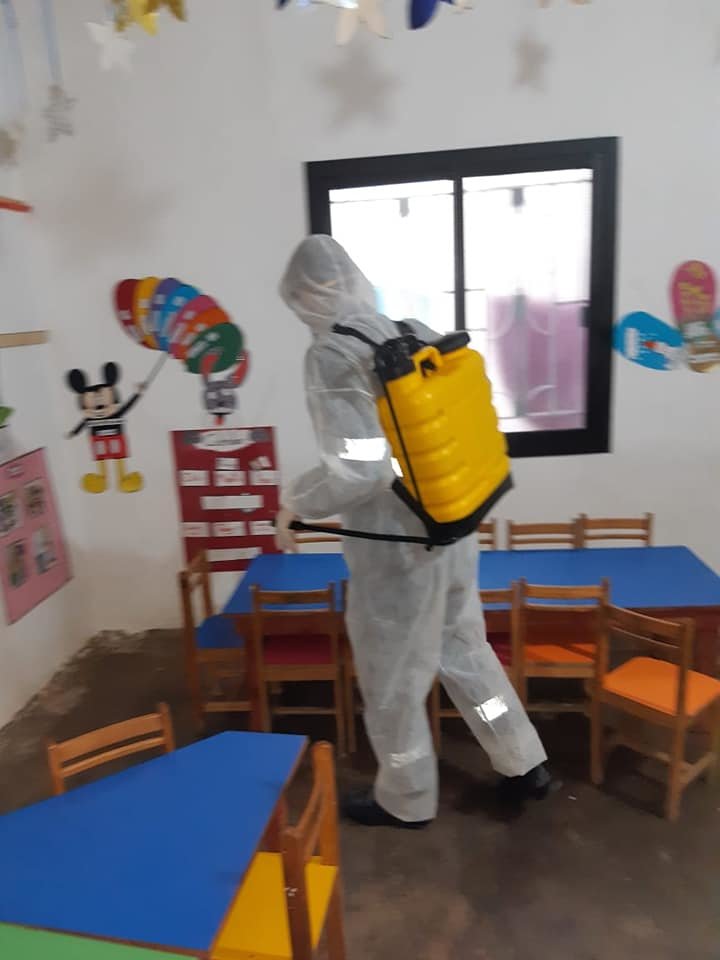By Hiba Hamzi | Program Coordinator
Background during and after the implementation of the project;
It became clear how fragile the health system was in most countries of the world, including those that were ranked advanced in various fields. The general situation in Lebanon is ominous, with political divisions, economic collapse, the debt payments of foreign debt and the great benefit in the face of the Corona epidemic.
Lebanon has recorded 861 cases of coronavirus, which has caused 25 deaths in the country so far. The Government has decided to renew and impose a daily curfew from 7pm to 5am as part of measures and set to extend a countrywide lockdown by two weeks until June 6 to combat the spread of coronavirus. The rates of commitment to prevent mixing and leaving houses vary from region to region where life seems very normal in most areas in terms of large numbers of people in the street and banks! The daily report shared by the Ministry of Health shows that the number of tests achieved until today reaches 10,808 while Lebanon is receiving 4 flights from outside including Lebanese students, special cases especially from the countries that categories as epidemic countries!
The Syrian refugees are on the mandate of the UNHCR while the Palestinian refugees are exclusively served by The United Nations Relief and Works Agency for Palestine Refugees in the Near East (UNRWA).
Lebanon hosts the highest number of refugees per capita in the world. UNHCR estimates approximately 1 million and half displaced people in need across the country and having a very strict restrictions on entering the country since 2015, as well as hundreds of thousands of long-term Palestinian refugees and asylum-seekers.[1]
UN reports state that 80% of the 215,000 Syrian households in Lebanon are existing below the poverty line and more than half live in sub-standard conditions in overcrowded buildings and abandoned warehouses. Amnesty International has reported that Syrian refugees within Lebanon are experiencing an “increasingly hostile and xenophobic environment”.
While According to UNHCR, the number of registered refuges reaches 1500.000 individuals[2] distributed all over Lebanon; 35% are in North Lebanon, 34% in Bekaa, 18% in Beirut and 13 % in southern Lebanon and more than 87000 are on the waiting lists.
Naba’a Achievements; During the last period, The most highlighted achievements during the last period;
- Distance learning is one of methods applied by most NGOs, Governmental schools UNRWA and INGOs in working with children and parents from the begining of March until now (med April 2020), while we are now in the phase of evaluating that experience to plan for May.:
we are new to this method , but trying to find our way without doing Harm , investing in the training conducted by the partners ( SCI – UNICEF .. ) ensuring better educational opportunities for children during COVID – 19 pandemics
1- Creating the WU groups (2 groups per teacher, 12 children per group
2- Visualization of the lesson (video, illustration, PP)
3- Sharing lessons with the group.
4- Parents as facilitators; Send parents a notification in order to facilitate the process with their children.
5- Back to the group 2 Hrs later to handle their questions and check their understanding; Awarding children
6- Feedback to parents regarding their children achievements
- Fostering and reshape the lives of the most marginalized 230 Lebanese, Syrians and Palestinians young and adolescent girls through empowering the vocational skills of the most marginalized Lebanese girls and enrolling them in the vocational training center to study a vocational profession, this might help in preventing them to get married in the early ages and to think of their future in addition to provide an opportunity for them to find a job in the Lebanese community and to integrate with into it, so that their socio-economic situation will be enhanced as they are able to afford their daily expenses without being a burden on their families.
- We encourage our team to use new technologies to communicate and follow-up continuously throughout the day, and some professors expressed that they feel tired more than the normal working days before the crisis of Corona.
- In coordination with the school administrations, we worked to provide them supportive materials for the grades 1 to 9, which was appreciate from the principals for this the initiative, which helped students in their learning.
- We have reached 1250(686F:564M) students to benefit from this methodology through the videos that had been sent to the direction of school.
- For the grade from 1 to 9, Around 80 Nabaa teachers work with a group of children (Between 15 to 20 children) each according to their specialist.
Psychosocial & case management;
- Throughout the Corona period, work groups have been established through What’s Up, which included a group of women, girls, and adolescents for the purpose of communicating with them and raising their awareness as well. Add to this, the individual cases have been followed up through WhatsApp, as it is worth mentioning that a group was created to follow up the collective cases. On the other hand, we’ve communicated with girls where several awareness sessions have been provided, such as COVID-19, anger management, emotional distress, and Post-traumatic stress disorder (PTSD). As for the teenagers, we’ve communicated with them as well as we gave them awareness sessions about COVID-19, time management, and emotion management.
Case study
Name: T.H.
ü Bad economic situation
ü Threatened by dropout from school
ü Abused by her fiancé
Her family consists of five members; she is the eldest daughter. They suffer from poverty especially after her father’s death when she was at the age of 17. By that time, she was preparing for her Brevet but her father’s death affected her psychologically, so she was forced to dropout from school. Her educational level was good and her dream was to become a chef, but her family’s economic situation was bad, which affected her dream.
That is all what she said when we visited her for the first time at home and asked her about the profession that she wants to learn.
At the time of her participation in the project’s workshops about GBV, Protection and risks of early marriage, she told social worker about her engagement. When she was 17 years old, she got engaged to her cousin who was 24 years old. She said that, at the beginning of the relationship, her fiancé was good, but when his family interfered and talked about her poverty, she felt psychological pressures. They were talking and arguing about her family all the time without even hearing their decisions. Plus, they tried to control her, which increased the psychological stress that lead her to breakup.
After her breakup, her family supported and helped her to feel better which affected positively on her psychological state. When we started the activities, she had recently broken up with her fiancé., we helped her to put a new plan for her life and start to achieve her dreams. After that, she studied to become a Pastry Chef and tried to teach some children at home to help her family financially. Now she is knowledgeable about relationships, and thanks to her participation in the workshops and awareness-raising sessions she became totally aware of her future relationships.
We always follow-up on her through activities such as lesson follow-up, in addition to encouraging her to have ideas, then we discuss the project topics with her in addition to her personal life.
[1]https://helprefugees.org/lebanon/?gclid=EAIaIQobChMInc-TgeeY5AIVyLHtCh0qdgA_EAAYAyAAEgIaDPD_BwE
[2] The communicated number from the ministry of foreign affairs is exceeding these figures!
Links:
Project reports on GlobalGiving are posted directly to globalgiving.org by Project Leaders as they are completed, generally every 3-4 months. To protect the integrity of these documents, GlobalGiving does not alter them; therefore you may find some language or formatting issues.
If you donate to this project or have donated to this project, you can receive an email when this project posts a report. You can also subscribe for reports without donating.
Support this important cause by creating a personalized fundraising page.
Start a Fundraiser